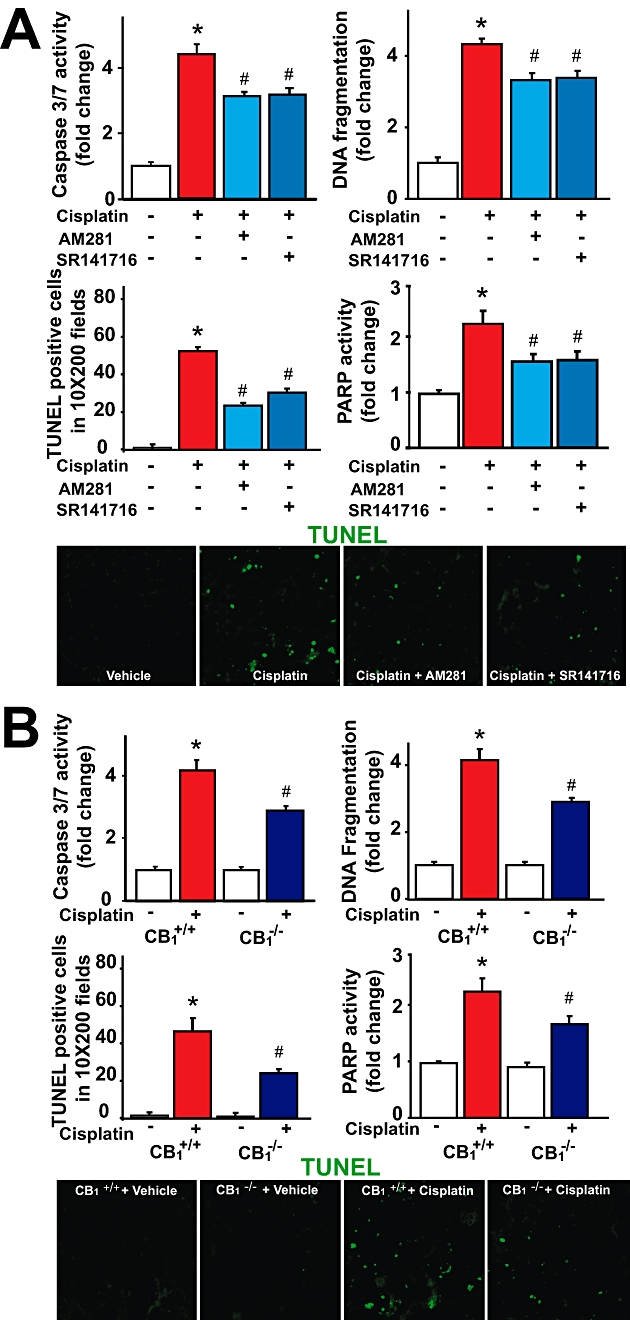Figure 4.

Pharmacological inhibition or genetic deletion of cannabinoid-1 (CB1) receptors attenuated the cisplatin-induced renal cell death. All markers of cell death [evaluated by caspase-3/7 activity, DNA fragmentation, terminal deoxynucleotidyl transferase-mediated uridine triphosphate nick-end labelling (TUNEL) and poly (ADP-ribose) polymerase (PARP) activity assays] in the kidneys were significantly increased by cisplatin and were attenuated by AM281 or SR141716 treatment (A), and also in CB1 knockout (CB1−/−) mice compared with CB1+/+ littermates (B). Results are mean ± SEM of 6–8 experiments per group. *P < 0.01 versus vehicle in C57BL/6 mice (A) or versus CB1+/+ mice treated with vehicle (B); #P < 0.05 versus cisplatin in C57BL/6 or CB1+/+ mice (A and B respectively). Representative images at the bottom of each panel show cisplatin-induced increased number of TUNEL-positive cells (green staining) in kidney sections, which was attenuated with AM281 or SR141716 (A), and also in CB1−/− mice compared with CB1+/+ littermates (B).
